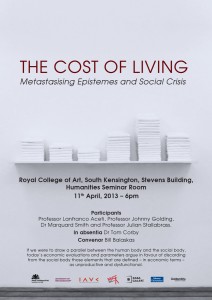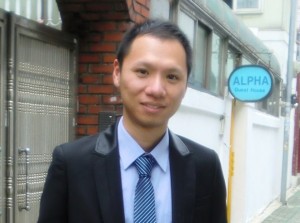Posts by David
China in Britain # 6: Diasporic Translations
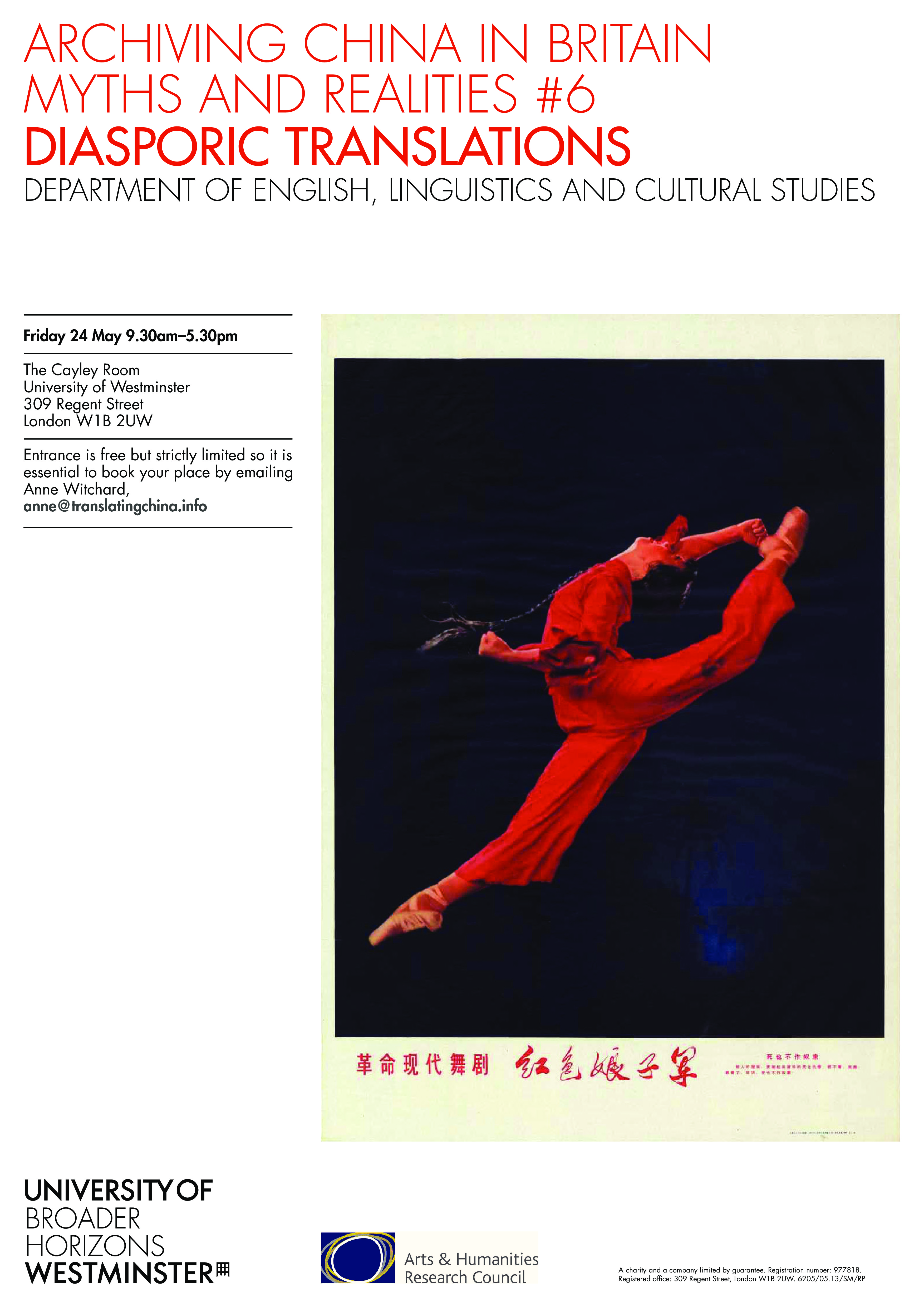
ARCHIVING CHINA IN BRITAIN: MYTHS AND REALITIES #6
DIASPORIC TRANSLATIONS
Department of English, Linguistics and Cultural Studies, University of Westminster
Co-hosted with the Contemporary China Centre
Friday 24 May 9.30am–5.30pm, The Cayley Room, University of Westminster, 309 Regent Street, London W1B 2UW
Entrance is free but strictly limited so it is essential to book your place by emailing Anne Witchard: anne@translatingchina.info
9.30AM – Coffee served in Room UG05
10.00AM – ‘The work of Ming-Ai (London) Institute 院 徽 涵 意 and their historical project on British Chinese history’
Chungwen Li and Aubrey Ko will be talking about Ming-Ai, set up in 1993 to promote social, cultural, educational and economic exchanges among the peoples of Hong Kong, China and Britain, http://www.ming-ai.org.uk
10.30AM – ‘On Not Speaking Chinese – The Hidden Lives of the Chinese in the Caribbean’
Chrys Chijiutomi, Associate Research Assistant for ‘China in Britain: Myths and Realities’ # 6, currently taking the MA, Culture Diaspora Ethnicity at Birkbeck College, University of London.
This paper will examine the historical and contemporary presence of Chinese communities in the Caribbean and consider what ‘Chineseness’ means in an age of globalisation and diaspora, looking at the socio-cultural impact and influences of Chinese Caribbean communities on artforms such as music (e.g. reggae), literature, theatre, dance, food cultures and visual art.
11.00AM – Morning Coffee served in Room UG05
11.15AM – ‘China in Britain: China in the Caribbean’
Dr. Judith Misrahi-Barak (Paul-Valéry University Montpellier III, France).
11.45AM – Diasporic Migrations panel chaired by Dr. Diana Yeh
12.00PM – ‘How Jim was Shanghaied: 1930s Shanghai and its lasting influence on the writing of JG Ballard’
Duncan Hewitt (New York University in Shanghai)
The unique environment of the Shanghai of the 1930s and ‘40s has exerted a lasting influence on the world of English literature through its impact on the distinctive vision of the writer JG Ballard. This paper looks at how Shanghai’s rampant consumerism, highly developed media culture and constant threat of violence influenced not only those of Ballard’s works which deal explicitly with his Shanghai childhood, but also the author’s writing and worldview throughout his career. It’s something Ballard initially denied, but came to acknowledge in his later years – though it’s a connection which has yet to be embraced by the Shanghai authorities.
12:45PM – ‘East West Connectivities in Two Dances: Red Detachment of Women (1964) and The Nightingale (1981)’
Dr. Geraldine Morris (Roehampton University)
The paper examines the notion of identity by reference to two dance works created in contrasting nations, the Peoples Republic of China and the United Kingdom, and considers the extent to which an aesthetic object can be a representation of a country’s culture. Using a multidisciplinary approach, Morris will examine the ways in which opposing ideologies merge in these works producing an East/West fusion. Red Detachment of Women (1964), created by a collaborative team of three, Li Chengxiang, Jiang Zuhui and Wang Xixian, was made in the years leading up to the Cultural Revolution. It was conceived as a patriotic, anti-bourgeois work, derived entirely from Chinese values, and yet is suffused with Western ideals and imagery. The Nightingale (1981) choreographed by Frederick Ashton, the founder choreographer of the Royal Ballet, is a hybrid work, comprising dance and song mixing East and West but perceived as Western. Dances are identified mainly through their choreography, so a dance that embodies a Western style of movement can only ever be partially Eastern, whatever the narrative content. In Red Detachment of Women, while the story, sets and costume are evidently Chinese, the movement and form is balletic and embraces a Western aesthetic. In contrast, The Nightingale borrows from Chinese regional dance but is framed by British balletic culture. The paper demonstrates that by teasing out the complexities of a dance work, the perception of its cultural identity can be both disturbed and challenged.
1.15PM – Buffet Lunch in Room UG05
2:15PM – ‘Only Connect: New Media and Chinese Overseas from the Age of the Telegraph to that of the Internet’
Jeffrey Wasserstrom (Chancellor’s Professor of History at University of California, Irvine)
This presentation will look at comparisons and contrasts between the ways that different technologies of communication have fascinated and been used by Chinese to keep in touch with one another and learn about the world from the 1870s through the present. Points of departure will include globetrotter Li Gui’s accounts of telegraphy in his book about his 1876 trips around the world; the role that circular telegraphs played in political struggles of the late 1800s and early 1900s; the significance of the then-very-new form of email in spreading word of the Tian’anmen rising among Chinese studying in the West; and the growing importance of blogs, microblogs, online only journals, and other digital forms in connecting people within and beyond China.
3:00PM – ‘Cosmopolitans Four Ways: Artists of Hong Kong’s Visual Diaspora’.
Pamela Kember is an Independent Art Historian, Curator, and a Director on the Board of the Asia Art Archive Hong Kong.
The ‘cosmopolitan nomad’ articulates the state of existence of a number of migrant Chinese artists originally from Hong Kong who seem to inhabit a transnational existence, in the sense of constantly crossing borders, cultures and communities, internationally. This paper will examine the creativity of four such émigré Hong Kong artists, John Young (AUS) Paul Chan (USA) Suki Chan, (UK) and Simon Leung (USA) and focuses on specific diasporic subjectivites that inform their respective practices to date. The paper will examine the relationship between the diversity of their practices whilst dealing with specific frames of reference: concepts of memory, belonging and displacement.
3:30PM – ‘Transcultural Curating – Global perspectives on Contemporary Chinese Art’
Rachel Marsden is Research Curator (part-time) for Chinese Arts Centre (Manchester, UK) and Coordinator (part-time) for the Centre for Chinese Visual Arts (CCVA) (Birmingham, UK and China).
4:00PM – Afternoon Tea in Room UG05
4.15PM – ‘The Fu Manchu Complex’
Daniel York will discuss his work as a founding member of the British East Asian Artists’ group who have pressured the UK theatre industry to offer more opportunities to East Asian theatre artists. As a result of this, the Arts Council, Equity & SOLT/TMA recently sponsored an event at the Young Vic Theatre attended by 200 people to raise awareness of East Asian theatre practitioners, which Daniel helped organise as a member of the event steering committee.
Deadly Cuts to the Arts
The Museum of Contemporary Cuts (MoCC) is developing a research project, under the directorship of Lanfranco Aceti, to assess and map the impact of the arts funding reductions in several European Countries and North America, and would like to invite individuals and funded organizations to contribute their data.
This is a form that will provide us with the data regarding art organizations that have closed as a consequence of the current economic crisis or that have had their funding cut.
The research project will analyze the impact of the current economic crisis on the arts throughout the following countries (Austria, Canada, Belgium, Cyprus, Denmark, Finland, France, Germany, Greece, Hungary, Ireland, Italy, Netherlands, Norway, Portugal, Sweden, Spain, Turkey, United Kingdom and United States) comparing official data with data provided on each specific territory.
The project aims to create a repository of data that can be accessed and poured through to gain a clear impression of the affected organizations and the current state of the arts from 2007 to present.
MoCC will create, using the information gathered, a series of data visualizations, as well as art commissions, curatorial projects, exhibitions, research analyses and publications. It will promote initiatives that will be showcased and presented at international events and biennials.
At the end of 2012, one such organization effected, was the NIMk. The activities of the Netherlands Media Art Institute ceased as of 31 December, 2012.
To assist us with this task, we are asking individuals and arts organizations to send us the following information on the art organizations that have closed or have received funding cuts in the period 2007 – present.
You can provide this information by using our online web form available at this link: http://museumofcontemporarycuts.org/deadly-cuts-form/
Also, we would like to display, online, the Letter of Funding Cuts that art institutions received during the period 2007 – present.
These Letter of Funding Cuts can be scanned at 300dpi resolution and emailed to: museumofcontemporarycuts@gmail.com or posted, as a physical copy to be archived by MoCC.
Postal address: Ref. Letter of Funding Cuts To: Lanfranco Aceti, MoCC Director, Faculty of Arts and Social Sciences, Sabanci University, Orhanli/Tuzla, 34956 Istanbul, Turkey
Letters should be sent ideally by December 31, 2013 – but we will continue to accept them throughout the life of the Museum of Contemporary Cuts.
Enquires about this particular project, collaborations for exhibitions and research with MoCC should be sent to: info@museumofcontemporarycuts.org
To stay informed please subscribe to our newsletters: http://www.lanfrancoaceti.com/newsletters
Follow MoCC on Facebook: http://www.facebook.com/MuseumOfContemporaryCuts
Follow MoCC on Twitter: http://twitter.com/MoCC_2012
We acknowledge the support of Operational and Curatorial Research (OCR), International Association for Visual Culture, Kasa Gallery, Sabanci University, Chelsea College, Westminster University and Goldsmiths College.
Image credit: Jonathan Munro, Vacant, 2013. Digital image.
Through the Looking Glass: Shifting Perceptions of War seminar

Group for War and Culture Studies, University of Westminster, Research Seminar Series 2012/2013
Through the Looking Glass: Shifting Perceptions of War
Wednesday 8 May 2013, 6 pm – 8 pm, Room 351
University of Westminster, 309 Regent Street, London W1B 2UW
Joram ten Brink, University of Westminster
‘The Act of Killing’
Joram will talk about a documentary he recently produced: “The Act of Killing”, directed by Joshua Oppenheimer and a major outcome of the Arts & Humanities Research Council’s Genocide and Genre Research Project awarded to The Centre for Research and Education in Arts and Media at the University of Westminster. The documentary challenges former Indonesian death squad leaders to re-enact their real-life mass-killings in whichever cinematic genres they wish, including classic Hollywood crime scenarios and lavish musical numbers. The film has received widespread critical acclaim most recently at the Toronto and the Berlin Film Festivals.
Maki Kimura, University College London
‘Narrative as a Site of Subject Construction: The “Comfort Women” Debate’
The ordeal of `Comfort Women’ who were sexually enslaved by the Japanese Imperial Military during the Second World War became widely known in the 1990s through these women’s accounts of their experience. Instead of considering their narratives as historical data which reflect the `true’ historical past, the talk locates them within a broader framework of thinking of narratives. Drawing on the understanding of narrative as a key to the self and the subject which has been developed in narrative research, as well as Judith Butler on interpellation and Gayatri Chakravorty Spivak on subaltern agency, the talk argues that the `Comfort Women’s’ testimonies should not be read one-dimensionally in the light of `truth’ and `falsity’, but should rather be considered as the site of their subject-formation. Their narratives are where agency concurrently emerges, and `Comfort Women’ are thus not powerless victims but are active participants in their creation of their own narratives and their own selves.
Entrance free. To reserve a place, please R.S.V.P. Dr Caroline Perret at: C.Perret@westminster.ac.uk
Allan Stoekl Neoliberalism & Climate Change review

Our Visiting Professor Allan Stoekl’s review of Adrian Parr’s book The Wrath of Capital: Neoliberalism and Climate Change Politics is currently up as a freebie on the Radical Philosophy site. Check it out here: http://www.radicalphilosophy.com/web/a-differing-shade-of-green
We Have Come to Shack Up with You
We Have Come to Shack Up with You is a new art project by Lanfranco Aceti.
Lanfranco Aceti Inc. sponsors 10 return train trips from London to Wendover, to the country home of the current Prime Minister. In the spirit of sacrifice and in order to share the costs of the current debt, perhaps the Prime Minister may consider providing accommodation in the extra number of rooms of his country home.
This rambling performance that sees an idyllic journey in the English countryside as well as a walk up to the country house of the PM will provide an artistic and aesthetic moment to reflect on the philosophical implications of a growing divide between the haves and have nots, between petty crimes by the lower classes heavily punished and global criminal activities by the higher classes that go unpunished.
On the 1st April, 2013 (as a bad April Fools’ joke) a set of new stringent changes have been made to the United Kingdom’s welfare system. One of the most controversial changes by the current government is to penalize those living in social housing; the disadvantaged and out of work. Find out more about the bedroom tax.
When: 13th April 2013
Time: 10am – 5pm
Where: Leaving from London Marylebone to Wendover
To apply for this trip and be one of the lucky 10 to participate in the artwork please get in touch with the Museum of Contemporary Cuts by accessing the link to the form and provide your name, email, telephone number and a short text explaining the reason why you should join the trip.
Additional to the cost of train travel the 10 attendees will receive lunch and a pint in one of the local pubs.
If you have any queries about this event, please contact Jonathan Munro and Ozden Sahin:
info@museumofcontemporarycuts.org
About Chequers the residency of the current Prime Minister
Chequers is the official country home of the Prime Minister of the UK. It is an Elizabethan mansion in the Chiltern hills near Princes Risborough, Buckinghamshire, and was given to the nation by Lord Lee of Fareham under the Chequers Estate Act 1917, which came into effect in 1921. Its estate contains about 500 ha/1235 acres of farmlands and woods.
We Have Come to Shack Up with You is realized by Lanfranco Aceti Inc. with the collaboration of MoCC (Museum of Contemporary Cuts).
Artworks by Lanfranco Aceti.
Senior Curators: Joasia Krysa and Marquard Smith.
Curators: Jonathan Munro and Ozden Sahin
The Cost of Living: Metastasising Epistemes and Social Crisis
The International Association for Visual Culture is thrilled to be collaborating with the Museum of Contemporary Cuts (http://museumofcontemporarycuts.org/) and Lanfranco Aceti (http://www.lanfrancoaceti.com/) on ‘The Cost of Living’. The event will be taking place at the Royal College of Art, London, on 11th April at 6, and contributors include Lanfranco Aceti, Johnny Golding, Marquard Smith, Julian Stallabrass, and Tom Corby (in absentia).
Michael Sorkin interview article

The latest in a series of interviews with major figures in contemporary architecture and architectural theory, to be found in Vol 2, no. 4 of ARCHITECTURE_MEDIA_POLITICS_SOCIETY, is now available on-line.
Michael Sorkin, ‘Driving on the Left: A View of the Street, the City and Architecture’
Sardonic, cutting, insightful, provocative: Michael Sorkin is one of today’s most radical architectural commentators with a staunch leaning to the political left and a literary bent for framing painful truths in ironic, and sometimes hilarious, verse. He is a Distinguished Professor of Architecture and Director of the Graduate Program in Urban Design at the City College of New York. He is also Chair of Terreform, Center for Advanced Urban Research. He was the architecture critic of the Village Voice for ten years and has recently been appointed as a Visiting Professor in Architecture at Westminster.
Read it at: http://architecturemps.com/
Chinese Kunqu opera talk and demonstration, April 3rd

Hosted by our friends in the Contemporary China Centre:
Chinese Kunqu opera talk and demonstration
London Jing Kun Opera Association, led by Kathy Hall
Wednesday 3 April 2013, 5.30 – 7.30pm
Room 451, University of Westminster, 309 Regent Street, London W1B 2UW
Kunqu (Kun Opera) enjoys national opera status in China. It is highly refined, visually stunning and very demanding on the actor. The four elements of singing, recitation, acting/movement, and martial arts form the basis of this musical and dramatic art. Strict control and pace, but also immense fluidity, are required in the performers’ use of hands, eyes, body, and feet. Dynamic interaction between actors and musicians in performance further adds to its vibrancy. In recognition of the intrinsic value of Kunqu, in May 2001 UNESCO declared it one of the first 19 ‘Masterpieces of the Oral and Intangible Heritage of Humanity’.
The programme includes: a short movement demonstration, typical of the elegance of the Kunqu opera dan; slide show and talk; musicians from the London Jing Kun Opera Association Kunqu Ensemble talking about their learning and performing experience; performance with musicians, including invitation to the audience to sing some lines with accompaniment.
All welcome, but non-University of Westminster attendees please register with Dr Derek Hird: d.hird@westminster.ac.uk
Lonnie Bunch on Museum Futures, April 25th
The Smithsonian-Westminster Colloquium
Thursday 25th April 2013, 6.15 – 8.00 p.m.
The Boardroom, University of Westminster, 309 Regent Street, London W1B 2UW
“Museum Futures”
A conversation with Lonnie Bunch, Director of the National American Museum of African American History and Culture, Smithsonian Institution, Washington DC
All welcome, but please RSVP to: Sharon Sinclair: sinclas@westminster.ac.uk
China in Britain #5: Archiving, April 27

Archiving: China in Britain #5
Saturday April 27th, 2013, 9:30am – 5:00pm
The Boardroom, 309 Regent Street, London W1B 2UW
10:00 ‘Shifting tastes in Chinese art: a history of the Berkeley Smith collection of Chinese ceramics at Cheltenham Art Gallery & Museum (1921-1958)’, Louise Tythacott (University of Manchester )
10:30 ‘Let’s talk about the money’, Helen Wang (Dept of Coins and Medals, The British Museum)
11.15 ‘The First Chinese Books in London’, Frances Wood (Keeper of China Collections at the British Library)
12:15 ‘Mapping An Archive of Chinese Representations in British Cinema’, Hiu M. Chan (University of Cardiff)
12:45 Title TBA, Katie Hill (Sotheby’s)
1:30 – 2:30 Lunch
2:30 ‘The Historical Photographs of China Project’, Robert Bickers (University of Bristol)
3.15 ‘Found In Time: My Shanghai Heritage’, Peter Hibbard MBE (Former President and Founder of the North China Branch of the Royal Asiatic Society)
3.45 ‘Maoist posters in London: A perspective from the University of Westminster’, Emily Williams (University of Westminster)
5:00 Drinks Reception
Tagged as archive, art, China, cinema, photography
Brecht as Educator talk, Weds 20 March

Wednesday 20th March, 4.00pm – 5.30pm
Room 106, University of Westminster, 32-38 Wells Street, London W1T
Matthew Charles (University of Westminster)
‘Brecht as Educator’
Tagged as Brecht, education, radical philosophy
Welcome to Chih-Sheng Ni, Visiting Junior Research Fellow in the IMCC
A welcome to Chih-Sheng Ni who is joining the Institute as a Junior Visiting Research Fellow in the Institute from March to September this year, supported by the National Science Council in Taiwan. Chih-Sheng is a doctoral student in the English Department of Tamkang University, and is working on a research project entitled “Spinning the Images of London: Space, History and Literature in the Work of Iain Sinclair,” which explores psychogeographic representations of London. Using Henri Lefebvre’s “trialectic conception”, the research focuses on the triadic dialectical relationship between material social space, language, and the creative, poetic act.
‘Educating Mind, Body and Spirit: Adult Education since 1838’, 24-25 April

Educating Mind, Body & Spirit: Adult Education since 1838
24 and 25 April 2013
Staff and graduate students from the Institute will be contributing to the two-day conference ‘Educating Mind, Body & Spirit: Adult Education since 1838.’ Fees for the two days, including refreshments, are £60 or £30 for students/unwaged. To book, please email archive@westminster.ac.uk Other enquiries may be directed to Dr Helen Glew via h.glew@westminster.ac.uk
Day 1
10.30 Welcome/Opening Remarks
10.40 Keynote: Mark Freeman, University of Glasgow, ‘Writing the History of Adult Education: Where Next?’
11.40 Coffee
11.55 John K Walton, University of the Basque Country, Vitoria, ‘Adult Education in the Humanities: What Sort of Future?’
12.30 Lunch
13.20 Panel: Adult Education and Institutions
Contributions from Elaine Penn, Darlene Clover, Kathy Sandford, Maureen Park, Kate James, Edward Bottoms, and Jim Rahahan
15.00 Coffee
15.20 Panel: Educating Through Culture
Contributions from Alex Warwick, Neil Mattews, Sara Dominici, Tom Woodin
18.30 Reception
Day 2
9.45 Panel: Gender and Adult Education
Contributions from Helen Glew, Fay Lundh Nilsson, Mervi Kaaminen, and Lajos Olasz
11 Coffee
11.20 Panel: Adult Education Initiatives and Personalities
Contributions from: Peter Catherall, Bill Bailey and Lorna Unwin, Lawrence Goldman, and Kate Bradley
12.50 Lunch
13.50 Keynote: William Whyte, University of Oxford, ‘Still Travelling in a Strange Country? Writing Adult Education back into the History of Universities’
14.50 Coffee
15.00 Panel: Adult Education: Comparative Perspectives
Contributions from Mark Freeman, Jana Sims, Kirsi Ahonen, Darly Leeworthy, and Anders Nilsson
16.50 Closing Remarks
Tom Corby, ‘Body of Evidence’ exhibition, Kaza Gallery, Istanbul, from March 21st
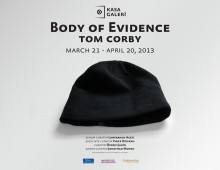
Body of Evidence by Tom Corby and Gavin Baily
Kasa Gallery, Istanbul, March 21 to April 20, 2013.
Visiting hours: 10:00 – 17:00 every day except Sunday
The Institute for Modern and Contemporary Culture’s Governing Board member Dr Tom Corby has a fascinating and challenging exhibition entitled ‘Body of Evidence’ opening next week at Kaza Gallery in Istanbul. If you’re in the neighbourhood, check it out. You can find further information below or by following this link: http://www.lanfrancoaceti.com/2013/03/body-of-evidence/
Produced in collaboration with MoCC (Museum of Contemporary Cuts), Goldsmiths College, Sabanci University and the University of Westminster. Curatorial team: Lanfranco Aceti (Kasa Gallery Director and Senior Curator), Vince Dziekan (Associate Curator), Ozden Sahin (Curator) and Jonathan Munro (Curatorial Assistant)
The exhibition initiates a series of new artworks and installations designed to blur the boundaries between medicine, data, documentation, economics and art. Conceived as a complex autoportrait of the body undergoing advanced treatment for cancer, the exhibition serves as the primary site where the possibilities, visibilities and public manifestations of the body at its most vulnerable are tested to their limits. Body of Evidence forms part of a larger, multi-faceted project (Blood and Bones) in which the artist faces a complex set of questions about the meaning of life and death. These are fundamental questions that art has wrestled with for centuries. The challenge presented in the case of Tom Corby’s exhibition is how to make sense of the relationship between physicality and data; materiality and immateriality; medical intervention and metastasis (where, in the broadest material and clinical sense of the word, the death spiral of the afflicted body is mirrored by the wider economic and environmental ecologies within which it is situated).
Employing an idiosyncratic set of approaches to the process of data visualization, the installation is composed of a series of objects related to the artist’s treatment that together act as a physical visualization of the data his illness is producing during his treatment. These data touch upon and use personal objects such as the hats he wears on a daily basis and which he documents via his blog. Together, these elements reveal a meticulous and methodically structured approach that challenges viewers to detach themselves from all emotional aspects. As the body becomes subjected to the procedures and processes of ordering, selecting, sectioning and framing, it transforms into a grand taxonomic work. In this sense, the exhibition exhibits a certain character typical of the British mindset; particularly, calling upon the indexing fetish attributable to the great scientific explorers of the Victorian era.
In this case, however, the exploration that Tom Corby is embarking upon is not across an uncharted ocean, unexplored land mass or previously unseen/inaccessible dimension of physical reality. The exhibition Body in Evidence charts the artist’s expedition inside his own body and across his own soul, exploring the existential data of a body/object subjected to medical intervention; the body as a system that while in the process of shutting down, continues to produce data. In equal parts heroic and obsessive, this project touches on attitudes to death and disease in a wider sense, namely a desire to find ways, processes and forms to transcend the act of termination and come to an accord with our feelings about it.
Tom Corby is the Director of CREAM’s Doctoral Programme, deputy Director of CREAM and coordinates the experimental media cluster research at Westminster. His interdisciplinary artworks (in collaboration with Gavin Baily and Jonathan Mackenzie) have been internationally exhibited and have won numerous awards including: nomination for the FILE Festival Digital Language award 2010; the jury nominated award at the 10th Japan Media Arts Festival in 2007; honorary mentions at the Prix Ars Electronica 2006 and 2000; honorary mention: “The Post-Cagian Interactive”, “Art on the Net” The Machida City Museum of Arts, Tokyo and the main festival prize Cynet Art 1999. In 2000 he was nominated for the “International Media Art Award 2000″, at Zentrum für Kunst und Medientechnologie (ZKM) in Karlsruhe, Germany and was the artist in residence at the ICA London 1998.
Modernity on Display: International Exhibitions seminar

Modernity on Display: Technology, Science and the Culture Wars at International Expositions circa World War II
Thursday 4th April 2013, 4 – 7 p.m.
Boardroom, University of Westminster, 309 Regent Street, London W1B 2UW.
Speakers:
Professor Robert Kargon, Willis K. Shepard Professor of the History of Science, Johns Hopkins University, Baltimore.
Dr Arthur Molella, Director, The Lemelson Center, National Museum of American History, Smithsonian Institution, Washington DC.
International expositions are receiving significant attention from historians of science and technology, and of culture more generally. These complex events mirror ideological and national rivalries as well as domestic social, economic and political struggles. In short, they are remarkable indices of important historical tensions. Especially interesting are the international expositions planned and/or mounted just before the outbreak of the Second World War. These expositions reflected the political regimes of the host countries, and in some cases serious divisions within them. They also highlight increasingly tense ideological divisions between nations representing liberal or social democratic republics (France and the US), communist (Soviet Union) and reactionary modernist or fascist regimes such as Germany, Italy and Japan.
The book in progress on which this seminar will be based includes chapters about World’s Fairs and expositions from 1937 to 1942, drawing upon three actually built, Paris, 1937, Dusseldorf 1937 and New York 1939, and two planned in detail but, owing to the coming of war, never executed, Tokyo 1940 and Rome 1942. The presentations will use two examples – New York 1939 and Rome 1942 – to illuminate the representation of science and technology at these fairs as indicators of modernity as part of the on-going culture and propaganda wars preceding actual hostilities.
Organised by the Graduate School, University of Westminster
R.S.V.P. Sharon Sinclair, sinclas@westminster.ac.uk
Tagged as Architecture, Modern, Modernism, science, technology, visual culture
‘Archiving China in Britain’ conference, April 27th, 2013

ARCHIVING CHINA IN BRITAIN
Saturday 27 April, 9.30am–6pm
The Boardroom, University of Westminster, 309 Regent Street, London W1B 2UW
This one-day conference is co-hosted by the Department of English, Lingusitics and Cultural Studies with the University of Westminster Contemporary China Centre, keeper of the Chinese Poster Collection, an archival holding of more than 800 posters from the Mao era.
RSVP anne@translatingchina.info
For further details please visit translatingchina.info
Tagged as archive, China, visual culture
Romantic Transdisciplinarity: Art and the New
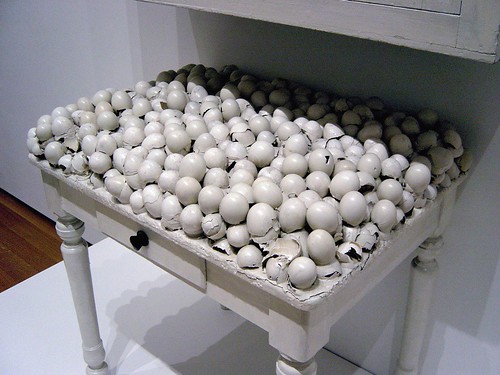
From our friends at the Centre for Research in Modern European Philosophy. Now Open for Registration:
Romantic Transdisciplinarity: Art and the New
May 8–9 2013
Senate House, University of London, Malet Street (http://goo.gl/maps/Sjkmr)
An International Conference about the transdisciplinary legacies of early German Romanticism in contemporary theory and practice in the arts and humanities. Organised by the CRMEP as part of its AHRC project on Transdisciplinarity and the Humanities in collaboration with the Institute of Germanic and Romance Studies, School of Advanced Study, University of London
Speakers include:
Howard Caygill (CRMEP, Kingston University)
David Cunningham (English, IMCC, University of Westminister)
Boris Groys (Slavic Studies, NYU)
Claude Imbert (Philosophy, ENS, Paris)
Gertrud Koch (Film Studies, Free University Berlin)
Olivier Schefer (Aesthetics, Panthéon Sorbonne, Paris 1)
Alison Stone (Philosophy, Lancaster University)
Hito Steyerl (artist, Berlin)
Peter Weibel (ZKM, Karlsruhe)
Registration is *REQUIRED* via: http://fass.kingston.ac.uk/activities/item.php?updatenum=2379.
Please note that the fees for the conference – waged £60.00; students & unwaged £20.00; Covers tea/coffee, the reception and lunch for both days.
Enquiries to: crmep@kingston.ac.uk
Tagged as art, radical philosophy, Theory
Reminder: Cultures of Capitalism salon on ‘Growth’, March 7th

Thursday 7 March, 7pm
Whitechapel Gallery, 77-82 Whitechapel High Street, London E1
Price: £7.00 / £5.00 concessions (includes free glass of wine).
Does progress always have to mean expansion? Is culture dependent on increasing space, numbers and activity? The final Salon in the IMCC series on Cultures of Capitalism at the Whitechapel debates our cultural and political obsessions with growth. Speakers include architect, academic and urbanist Sarah Chaplin, Director at Counterculture Partners Stephen Escritt, and critical theorist and Professor at Penn State University Allan Stoekl.
Book your ticket at: http://www.whitechapelgallery.org/shop/product/category_id/22/product_id/1538?session_id=13608477991e2790ead5092a4e07ee56485172feaf
Le Corbusier and the Challenge of a Pascalian Technocracy

Wednesday 6th March, 4pm – 5.15pm
Wells Street, room 106
Allan Stoekl (Penn State University / IMCC)
“Le Corbusier and the Challenge of a Pascalian Technocracy”
Tagged as Architecture, technology, Theory, Urban
Walter Benjamin, Pedagogy, and the Politics of Youth – further details

Walter Benjamin, Pedagogy, and the Politics of Youth
Friday 31st May – Saturday 1st June 2013
Fyvie Hall, University of Westminster, 309 Regent Street, London W1B 2UW
Co-hosted by the Institute for Modern & Contemporary Culture (IMCC) and the Centre for Research in Modern European Philosophy (CRMEP).
Participants:
Antonia Birnbaum (Paris 8)
Howard Caygill (CRMEP)
Matthew Charles (Westminster)
Élise Derroitte (Université catholique de Louvain)
Howard Eiland (MIT)
Milan Jaros (Newcastle)
Mike Neary (Lincoln)
Peter Osborne (CRMEP)
The conference is free and open to all. There is no pre-registration and attendance on the day will be allocated on a “first-come, first-served” basis.
Further Information: http://benjaminpedagogy.wordpress.com/2012/12/10/conference-announcement/
Tagged as education, radical philosophy



